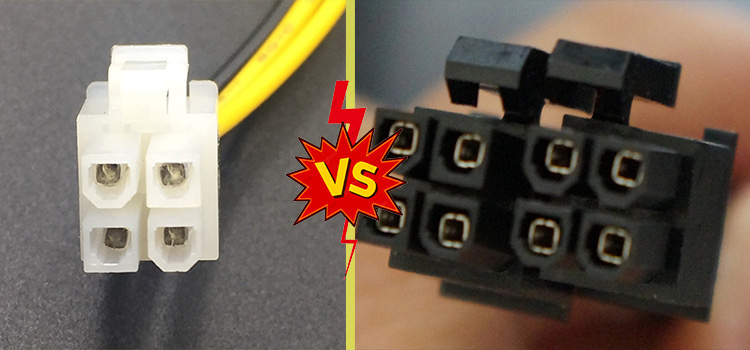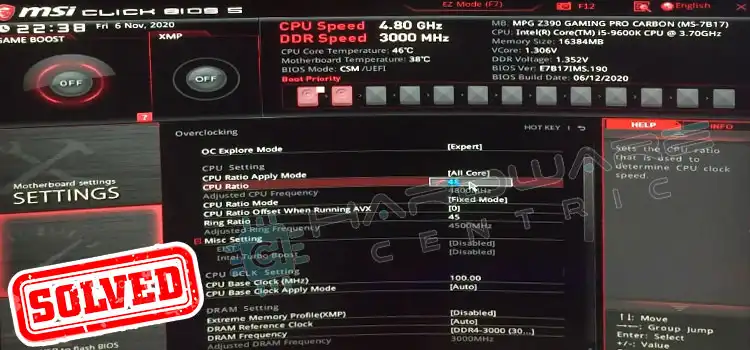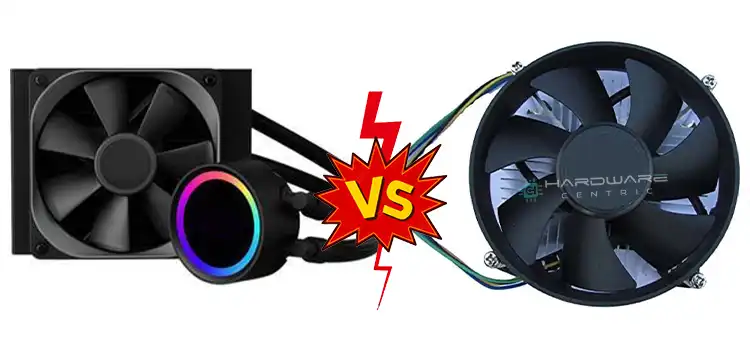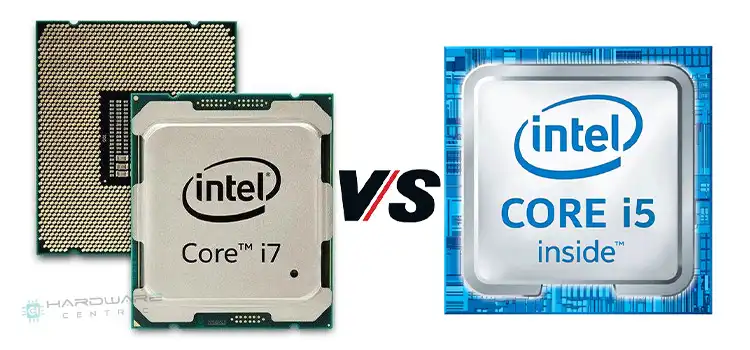AMD vs Intel for HTPC | Difference Between Them
Home theater PCs (HTPCs) have become an increasingly popular way for users to access media content, including streaming services, downloaded movies, and TV shows, as well as for gaming. When building an HTPC, one of the most important decisions you’ll have to make is which CPU to choose. In this article, we’ll compare AMD and Intel CPUs to determine which is the better choice for an HTPC.
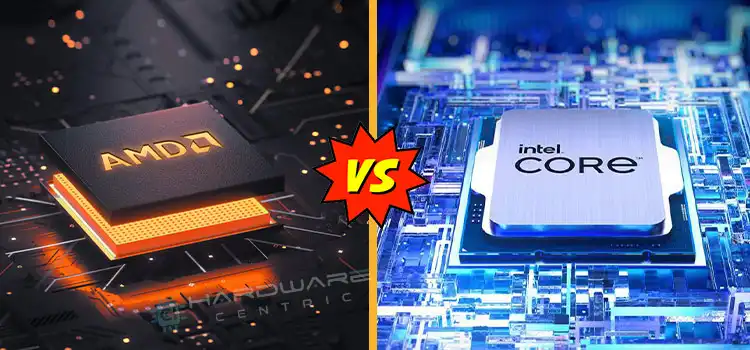
AMD vs Intel: Which is Better for HTPC?
When it comes to building an HTPC, you want a CPU that can handle high-quality video playback, run smoothly without lag or buffering, and provide a seamless user experience. Both AMD and Intel offer a range of processors that are suitable for HTPC builds, but which one should you choose?
AMD Processors for HTPC
AMD processors are known for their high core count and affordable prices, making them a popular choice for HTPC builds. The Ryzen series, in particular, is a great option for HTPC users looking for a high-performance CPU. The Ryzen 3 3200G and Ryzen 5 3400G are both excellent choices for an HTPC build, offering built-in Radeon graphics and high clock speeds.
Intel Processors for HTPC
Intel is another popular CPU brand for HTPC builds, offering a range of processors that are ideal for media playback and gaming. The Intel Core i3, i5, and i7 processors are all great options for an HTPC build. The Intel Core i5-10600K, for example, provides excellent performance and features built-in Intel UHD Graphics 630.
Comparison Between AMD and Intel CPU for HTPC
Below factors are considered to compare –
1. Performance
When it comes to performance, both AMD and Intel offer processors that are suitable for HTPC builds. However, AMD processors tend to have a higher core count and clock speed, making them better for multitasking and running resource-intensive applications. Intel processors, on the other hand, have better single-core performance, which is important for tasks like gaming.
2. Compatibility
Compatibility is another important consideration when choosing a processor for your HTPC. Both AMD and Intel processors are compatible with most motherboards, but it’s important to make sure that the processor you choose is compatible with your motherboard and other components.
3. Power Consumption
Power consumption is an important factor to consider when building an HTPC. AMD processors generally consume more power than Intel processors, but they also offer better performance in some cases. Intel processors, on the other hand, are known for their energy efficiency and are a better choice for those who want a low-power HTPC.
4. Price
Price is an important consideration when building an HTPC, and both AMD and Intel offer processors at various price points. AMD processors are generally more affordable than Intel processors, making them a popular choice for budget builds. However, Intel processors offer better single-core performance, which may make them worth the higher price for users who prioritize gaming performance.
Which One Should You Choose?
When considering a Digital Home solution, there are two main options available: AMD Live! and Intel Viiv. While AMD Live! may be the more cost-effective choice, especially for those who prefer a DIY approach, Intel Viiv offers a simpler solution as it comes pre-built and ready to use. However, those who are looking to upgrade their existing components may find AMD Live! to be a more suitable option. Ultimately, the choice between the two will depend on the specific needs and preferences of each individual user.
Here is a comparison table between the two of them, so that you can easily find out your priority and choose one. You can also check the following comparison table to know the differences between intel and AMD:
| Features | Intel | AMD |
| Entertainment Access | Exclusive access to movies, downloaded TV, music, games, and photos directly through their Viiv interface, available only with a Viiv-certified PC system | AMD Live! systems are feature-rich, multimedia PCs with advanced configurations, giving users flexible choices for enhanced home entertainment experiences |
| Proprietary Technologies | Clear View technology- Intel’s advanced graphics engine built into chipsets | Increased internet security and content reliability |
| Processor | Core 2 Duo series of processors with a 40% decrease in power consumption and a 40% increase in processing power compared to previous Intel processors | AMD64 dual-core technology (Socket AM2) |
| Compatibility | Most Viiv platforms will be compatible with Core 2 Duo | Microsoft Windows Media Center Edition (Windows Vista Premium or Ultimate when they become available) |
| Customizability | Viiv technology provides boxed cages of technology | AMD Live! the system provides a myriad of pathways to customize Digital Home |
| Operating System | Incorporates Microsoft’s new Vista operating system | Combines with Microsoft operating systems like Windows XP and the new Vista software |
| Media Streaming | End-users can link via a wireless or wired network within the home and stream media to several sources like laptops, other PCs, and remote wireless speakers, all controlled through the Viiv PC | Similar media streaming is available to AMD Live! users as well as Intel Viiv users. |
Frequently Asked Questions and Answers
1: Do I need a GPU for HTPC?
The need for a GPU in an HTPC depends on the intended usage scenario. If you’re only using the HTPC for streaming and basic tasks, then integrated graphics are sufficient. However, if you plan on gaming or video editing, then a dedicated GPU is highly recommended.
2: Is AMD better than Intel graphics?
Yes, when it comes to integrated graphics, AMD has been leading the pack in recent years. AMD’s Ryzen processors come with Vega graphics, which offer superior performance compared to Intel’s integrated graphics. This means that if you’re looking for a processor with good integrated graphics, AMD is the better choice.
3: Is AMD or Intel better for productivity?
In terms of productivity, both AMD and Intel processors are capable of handling most tasks. However, in recent years, AMD has been giving Intel tough competition. AMD’s Ryzen processors offer more cores and threads, resulting in better multi-tasking performance. This makes AMD the better choice for productivity tasks.
4: Are HTPCs worth it?
HTPCs are worth it if you enjoy watching movies, TV shows, and listening to music. They offer a better experience compared to traditional set-top boxes with more customization options and better performance. Additionally, they can double up as gaming machines, allowing you to play games on your big-screen TV. Ultimately, it depends on your needs and preferences.
Conclusion
When it comes to choosing between AMD and Intel for an HTPC build, there is no clear winner. Both companies offer a range of processors that are suitable for media playback, gaming, and multitasking. AMD processors tend to have a higher core count and clock speed, making them better for multitasking and resource-intensive applications. Intel processors, on the other hand, have better single-core performance, which is important for gaming. Ultimately, the best CPU for your HTPC build will depend on your specific needs and budget.
Subscribe to our newsletter
& plug into
the world of PC Hardwares
